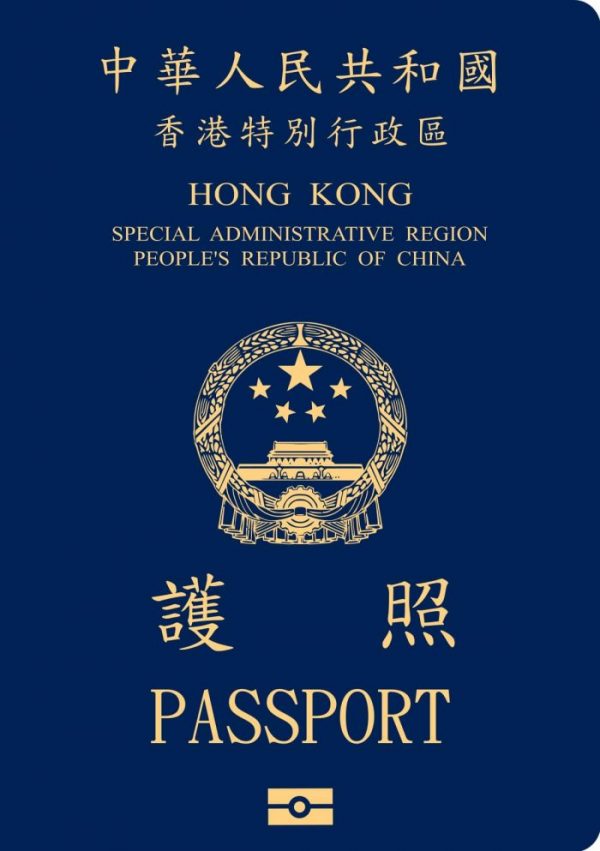Going viral on Indian social media, an image purportedly shows a Chinese-issued passport for Sri Lanka’s Colombo Port City, raising speculations of China taking complete control of the region.
The image contains a heading in the Chinese language, followed by “Colombo Port City” written in English, and subsequently, the text “Special Administrative Region People’s Republic of China” written in bold.
However, most Indian users missed the heading in the Chinese language at the top of the image, which reads as “China’s People’s Republic of China Hong Kong Special Administrative Region.”
Now a Chinese passport for Sri Lanka…https://t.co/TSeTc7NeAT pic.twitter.com/0nQJOGtb7v
— Simi Garewal (@Simi_Garewal) May 24, 2021
EurAsian Times found that a copy of the original Hong Kong-based passport was used to create the image after altering the text in multiple languages to confuse the social media users.

The image has been widely shared across social media with some verified accounts of Twitter also posting the screenshot to their followers. The posts sparked concerns in India claiming China setting up a base 290 km close to India near Kanyakumari.
The image was doing rounds following a development in Sri Lankan parliament which passed a bill last week on laws governing the Chinese-backed Colombo Port City.
The Port City Economic Commission Bill declared 269 hectares of land reclaimed from the ocean and annexed to the city of Colombo as the country’s first special economic zone (SEZ) for service-oriented industries.
The Bill empowers the President of Sri Lanka to establish a commission to independently govern the Special Economic Zone (SEZ). The businesses operating in the area can trade in their own currencies in the SEZ region.
The bill has created outrage because it empowers the commission to act independently of the country’s laws and allow foreign investors unbridled control on the resources and bypass local laws.
The port city is being built by China Communications Construction Co., which plans to transform the city into a modern financial district, building shopping malls, a marina, a hospital, 21000 apartments, and homes, among other infrastructure. The bill will empower the Chinese to make inroads into the governance of the city.
https://t.co/5TqNlROEKU
China is now 290 km from Kanyakumari. The Srilankan parliament approved bill that gives more or less complete control of the Humbanthota port to China. Located in Colombo, covers 540 acres is an official Chinese territory. Currency to be used Yuan— Aviator Anil Chopra (@Chopsyturvey) May 25, 2021
The Communications Construction Company has pledged around $1.4 billion for reclamation of land and proliferation of infrastructure adjacent to the Port of Colombo. The Sri Lankan government handed over 62 hectares (153 acres) of marketable land on a 99-year lease to the company in return for the investment.
This has raised concerns in India that the Port City could become a Chinese colony or an outpost, just around 300 km from India’s southernmost point.
The city is being touted as the next Dubai and the construction is going on a major scale to transform the local landscape into a modern investment hub. Sri Lanka hopes to reap significant benefits economically from the project.
However, the experts say the Chinese have an interest in establishing any kind of partnership with Sri Lanka, instead, it wants an overseas province.
The argument holds water since the small island country had similarly lost its Hambantota port after signing multiple deals with China. After failing to pay back the amount, the port was seized by the Chinese.
The bill being pushed through hurriedly by the Rajapaksa administration witnessed strong opposition, both by the political rivals and the public, who argued that the bill violated the country’s sovereignty, giving the governing commission overarching powers. The bill, they said, will result in the creation of a “Chinese enclave.”
According to reports, the bill was vehemently opposed mainly by the Tamil MPs. The legislator C.V. Wigneswaran asked the government whether its stated policy of striving for ‘One Country, One Law’ meant “Chinese law”.
The bill seeks to establish a seven-member commission to govern the Colombo Port city and which will have supreme powers over the province, including control of taxation and approval of new projects and investments.
The commission will empower foreign board members to make decisions, which will result in Chinese officials effectively taking control of the affairs of the city.
China has been trying hard to see the bill passed by the Sri Lankan parliament, with the Chinese defense minister having visited the country last month apparently to lobby for the passage of the crucial bill.




